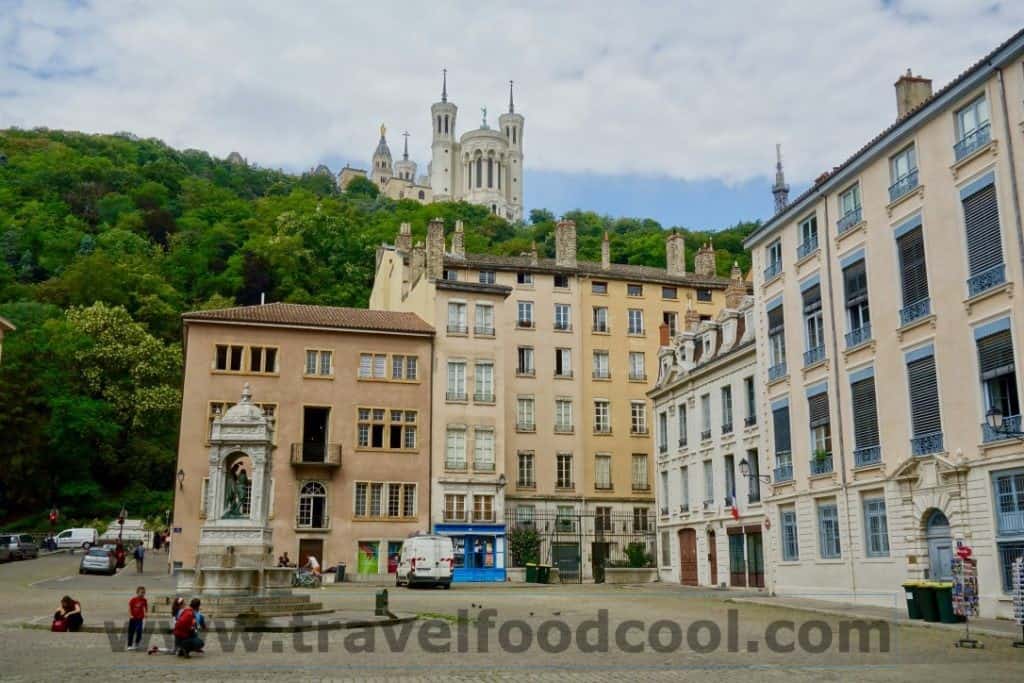
I have to admit that I’m not a fan of cold weather. The past few weeks, the weather in Toronto has been less than ideal. It’s been cold! Horribly cold (stop laughing, Winnipeg) and I’ve been dreaming of much warmer weather, like we had last summer. This past summer, on our way to Italy, Pete and I made a pitstop in Lyon, France. Pete insists that, if we were going to tour the Chartreuse Cellars, we spend some time in Lyon. Lyon, after all, is considered one of the culinary capitals of the world. They say it is home to more Michelin stars than there are in Paris (okay, an exaggeration), but they definitely take their food seriously there! Air Canada flies to Lyon (via Montreal) (as do other airlines throughout North America), so if you’re planning a trip (tip, wear stretchy pants), I thought I’d suggest 10 To See Lyon!
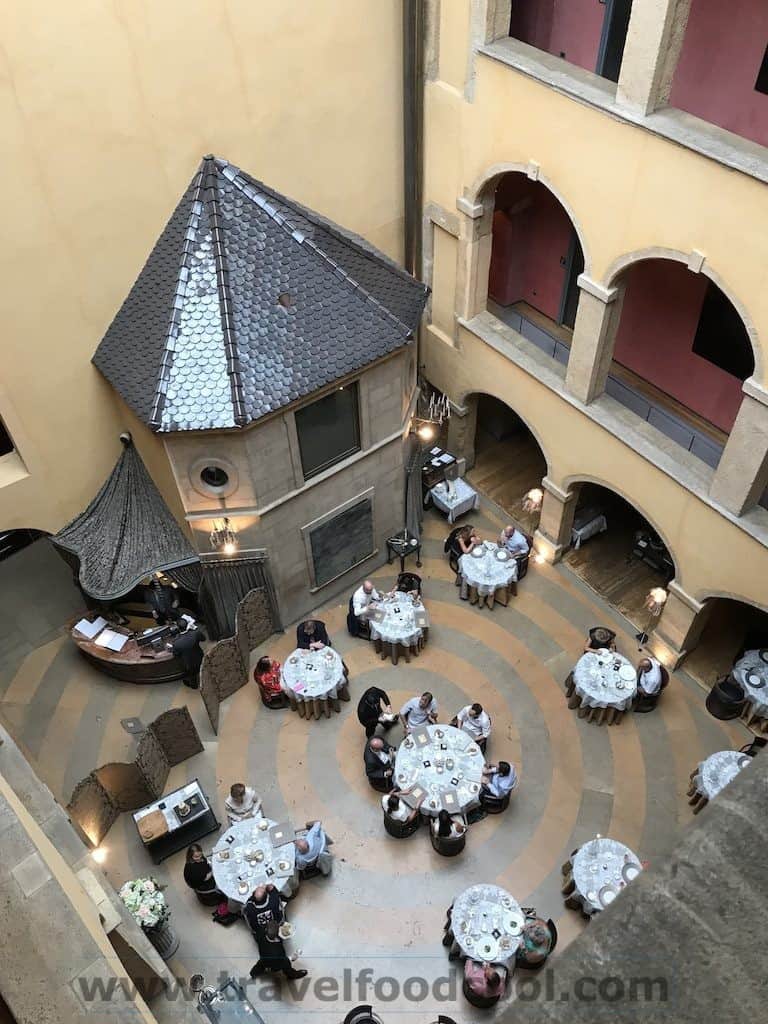
If you have 2-3 days to spend in Lyon, you can cover this list. In Lyon, we stayed right in the historic centre at the fabulous Cours Des Loges. The hotel is stunning, historic (the hotel consists of four buildings, the oldest dates back to the 14th century), centrally located, keeps bees on the property and has a one Michelin star restaurant. We definitely recommend this hotel if you’re going to Lyon.
Vieux Lyon (Old Lyon)
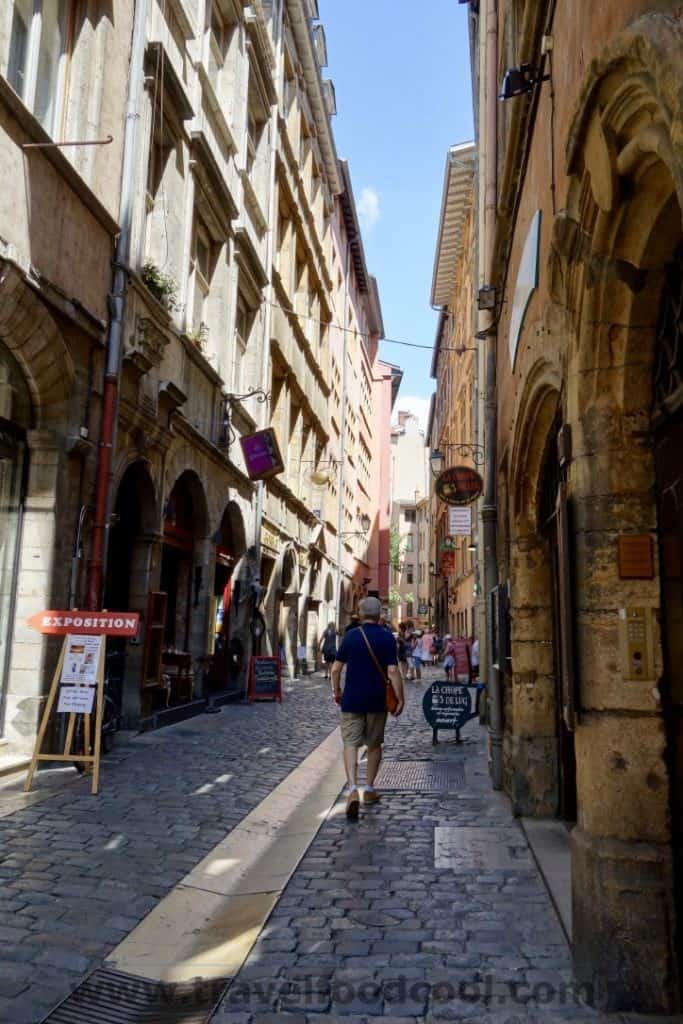
You might feel like you’re in a 16th-century movie set as you walk through the narrow streets of Old Lyon. The extremely photogenic cobblestoned streets are lined with balconied earth-toned buildings and window boxes of flowers.
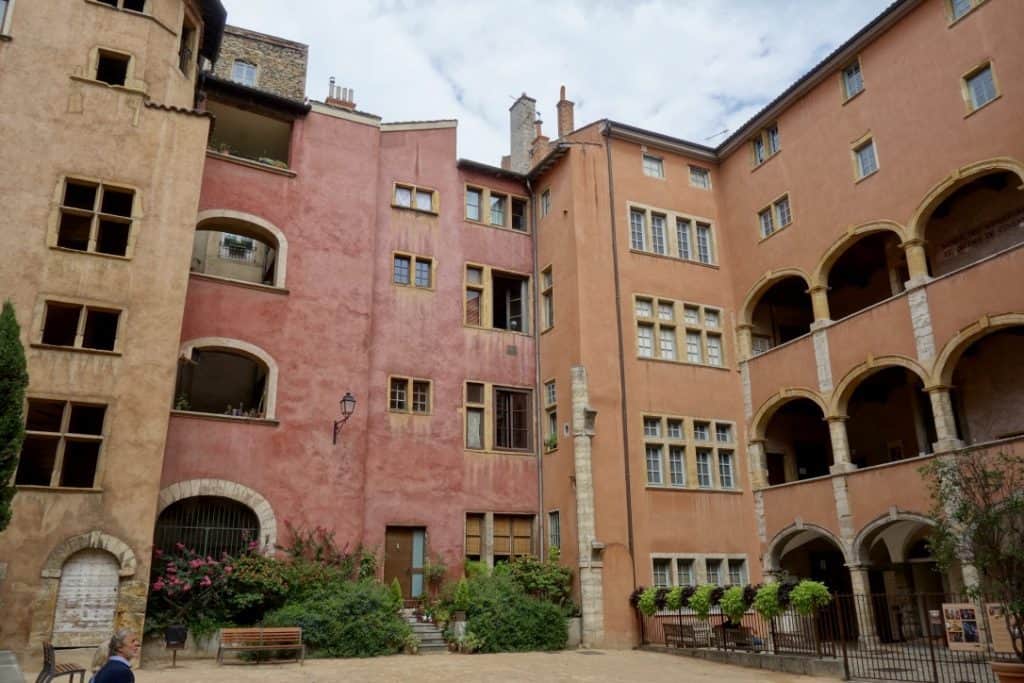
This walkable town is quite flat, but just remember that cobblestoned streets cause uneven walking. Restaurants are plentiful, as are bakeries and stores selling silk scarves.
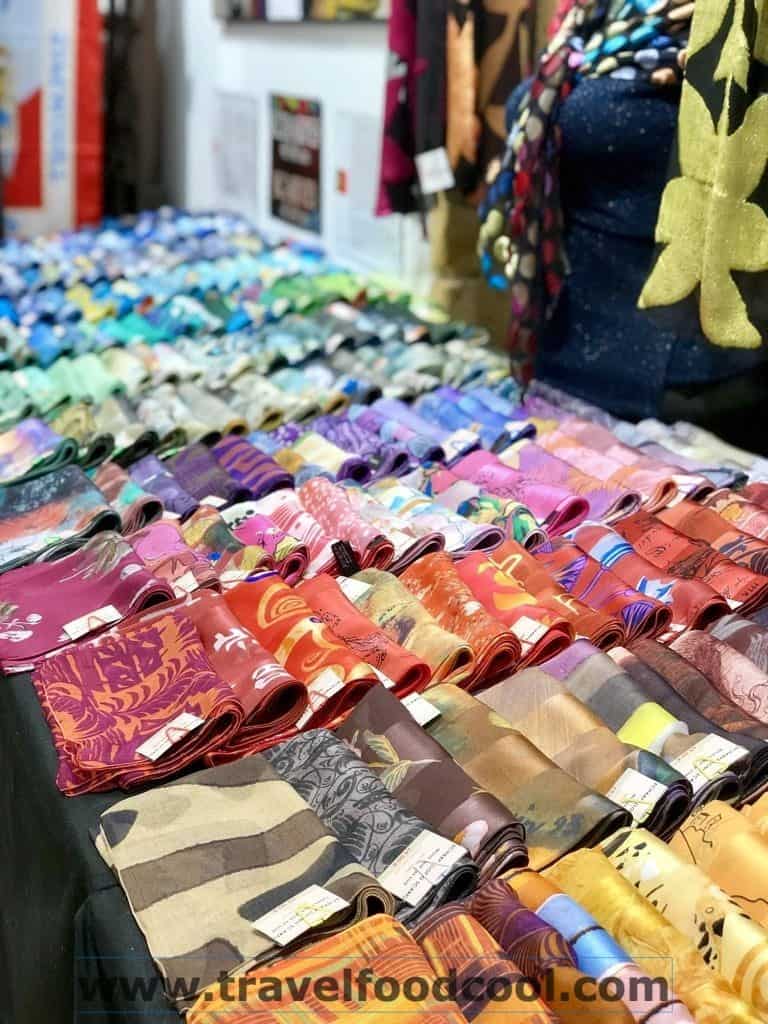
Museums abound – from the Museum of Miniatures and Film sets to the History Museum and the International Puppet Museum. Make sure to also stop in at:
Saint Jean Baptiste Cathedral, (8am-7pm)
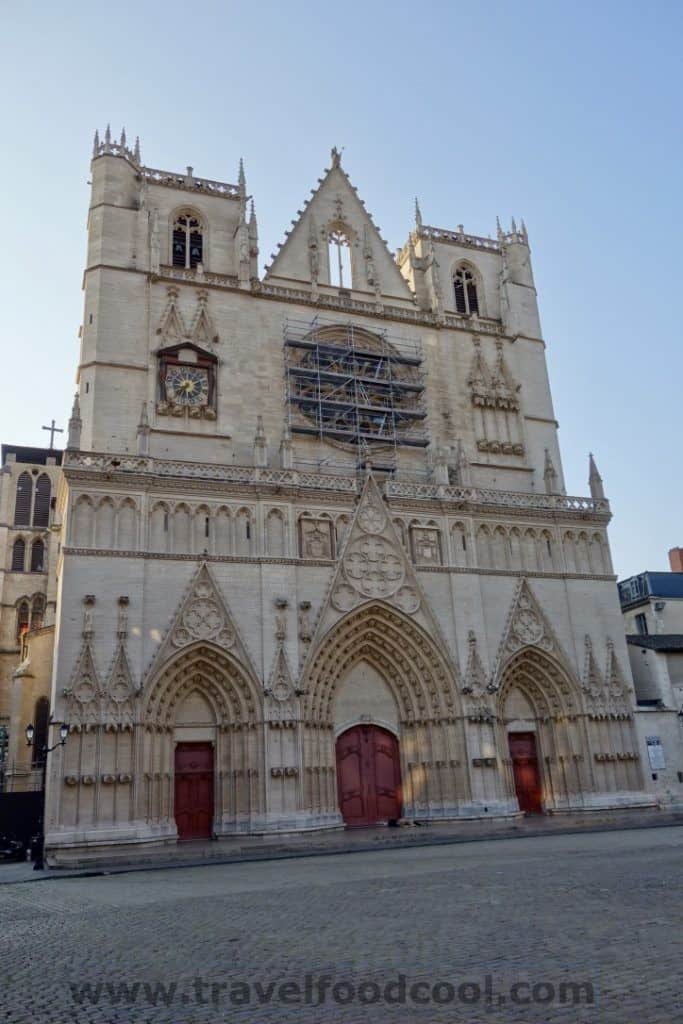
The Cathedral is gothic, but the interior is a combination of Roman and Gothic styles. The Cathedral was built between the late 11th to early 16th centuries. The (recently renovated) portals of its extravagant Gothic façade are decorated with 280 square stone medallions which were completed in 1480. Inside, the 106.6 foot (32.5m) nave is a reminder of the ecclesiastical power of Lyon. In 1079, “the Pope granted the Archbishop of Lyon the title of “Primate of All the Gaul” with legal supremacy over the principal Archbishops of the kingdom”. (Hence the Cathedral’s nickname of “Primatiale”).
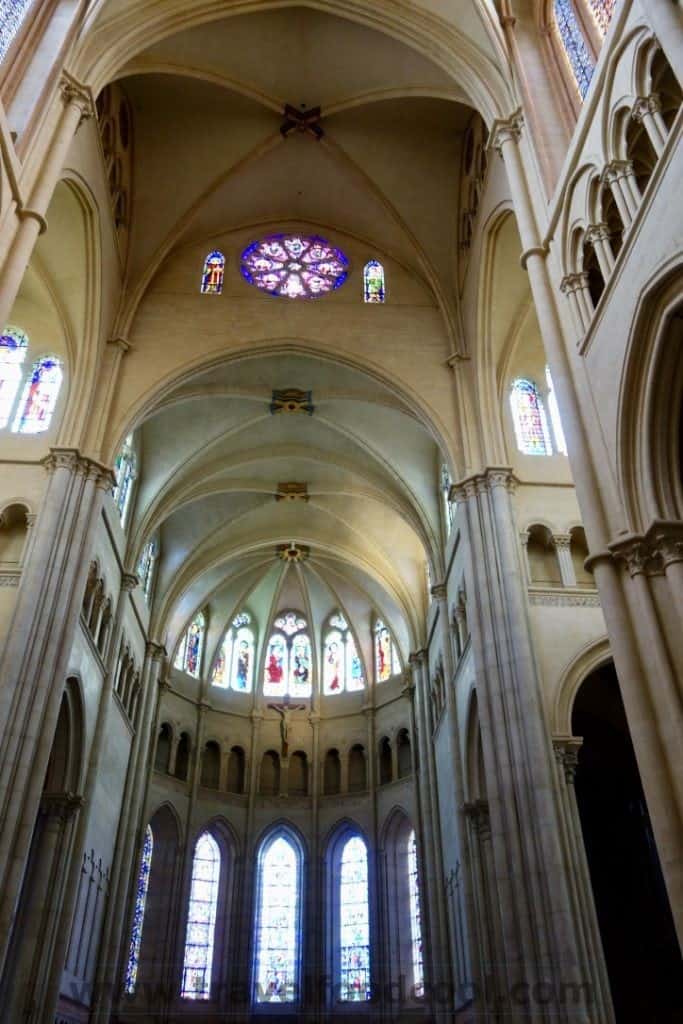
The Astronomical Clock in the north transept is one of the highlights of the church. There is also the Bourbon Chapel, built by Louis XI’s son-in-law.
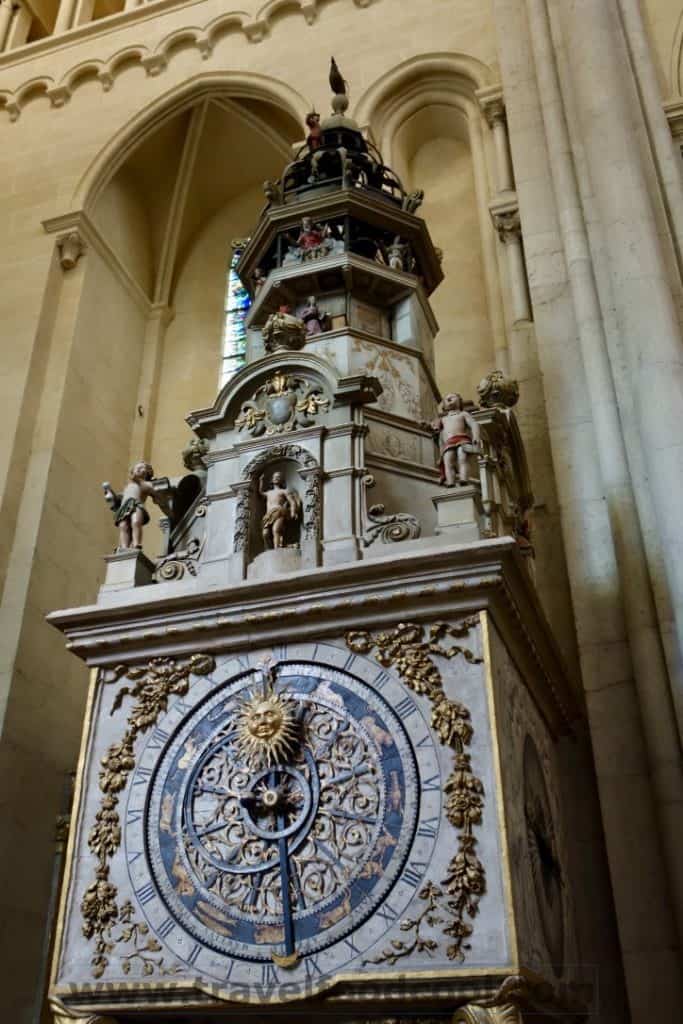
Traboules du Vieux Lyon
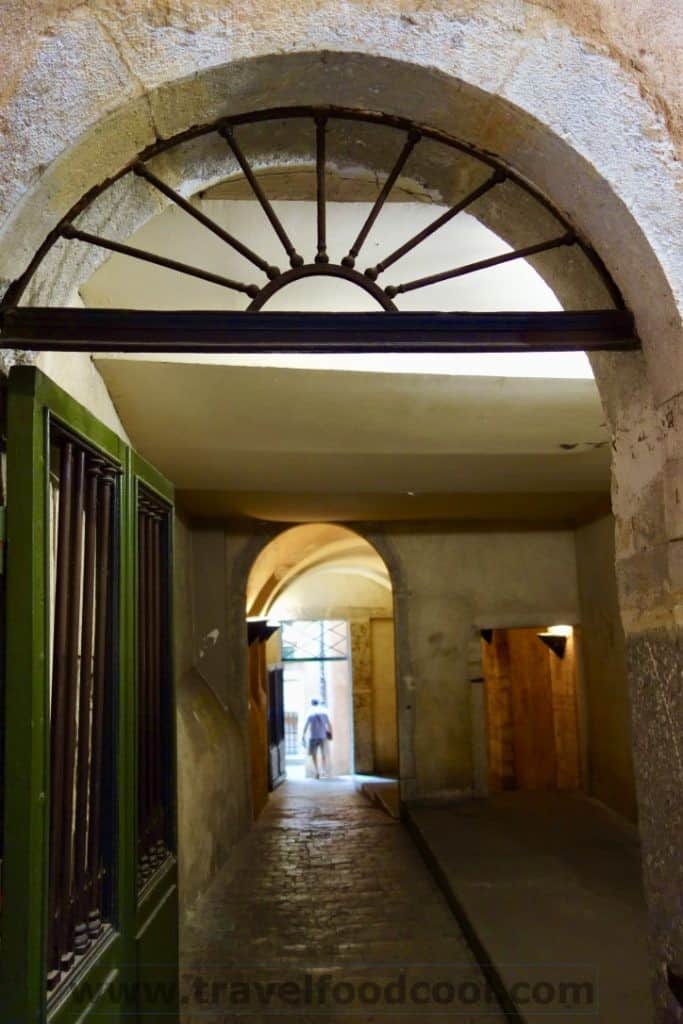
Toronto has its PATH, Florence has the Vasari Corridor, and Lyon is known for its Traboules. Traboules are a type of covered passageway, which linked houses and buildings together. There are as many as 400 Traboules through buildings and between courtyards. Originally, the Traboules were built in the 4th century to transport water from the Saone river to people’s homes. They were used as footpaths for the 14th-century silk merchants to transport their wares.
During World War II, the Traboules played an important role in providing cover for local resistance fighters against the German invasion. If you’re inside the snaking passageways, keep an eye out, as you can spot hidden staircases, secret exits, open courtyards and shortcuts.
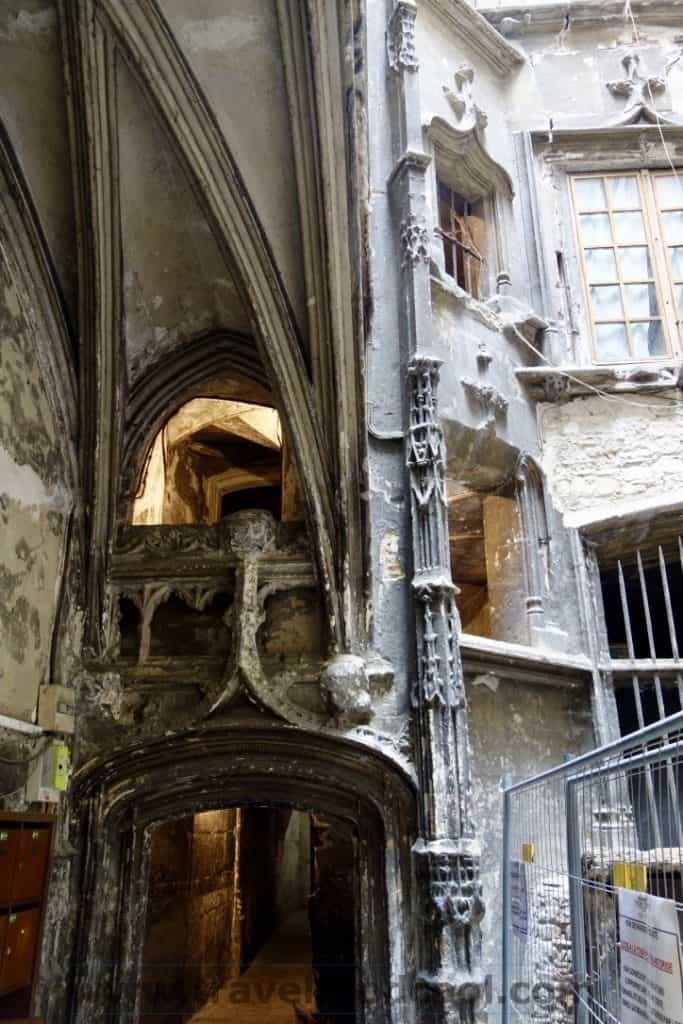
About 40 Traboules are, at various time, open to the public; others are only for private use. An identifying seal marks the public Traboules, while the private ones are behind locked gates or doors. The longest Traboule (“La Longue Traboule”) runs between 54 Rue Saint-Jean and 27 Rue du Boeuf; another Traboule begins at 9 Place Colbert/14 bis montee Saint Sebastion and is very picturesque, with a historic six-story external staircase. Perhaps the most famous with its courtyard and stunning pink Renaissance watchtower (which houses a giant spiral staircase with arched windows) is the Rose Tour Traboule (“Traboule de la Tour Rose”) which was a stone’s throw from our hotel.
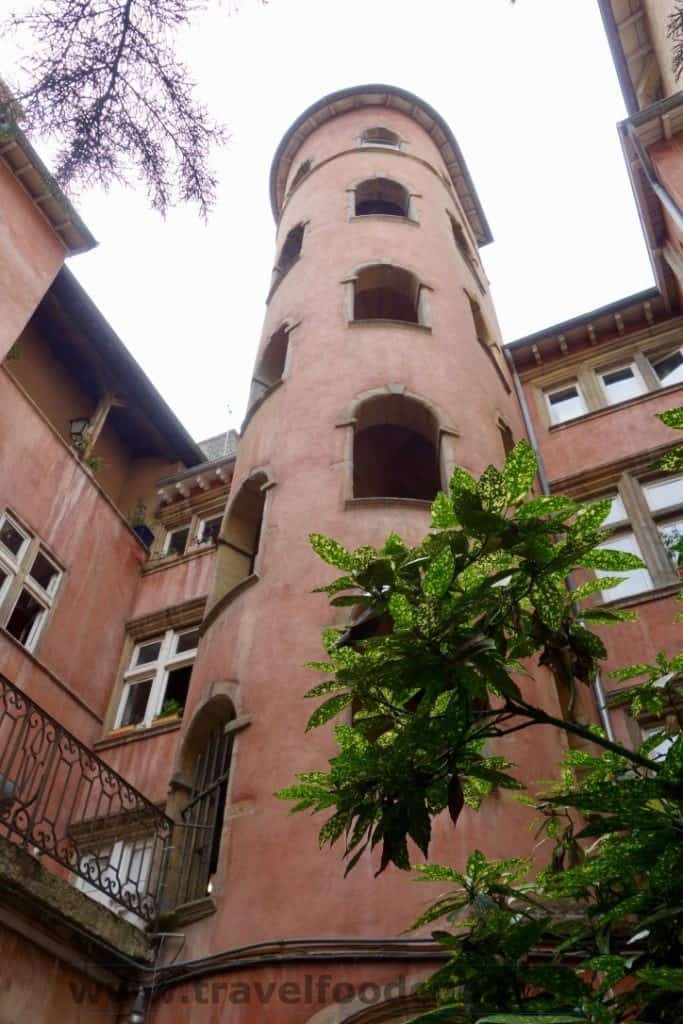
Parc de la Tête d’Or, (open 6:30am-10:30pm)
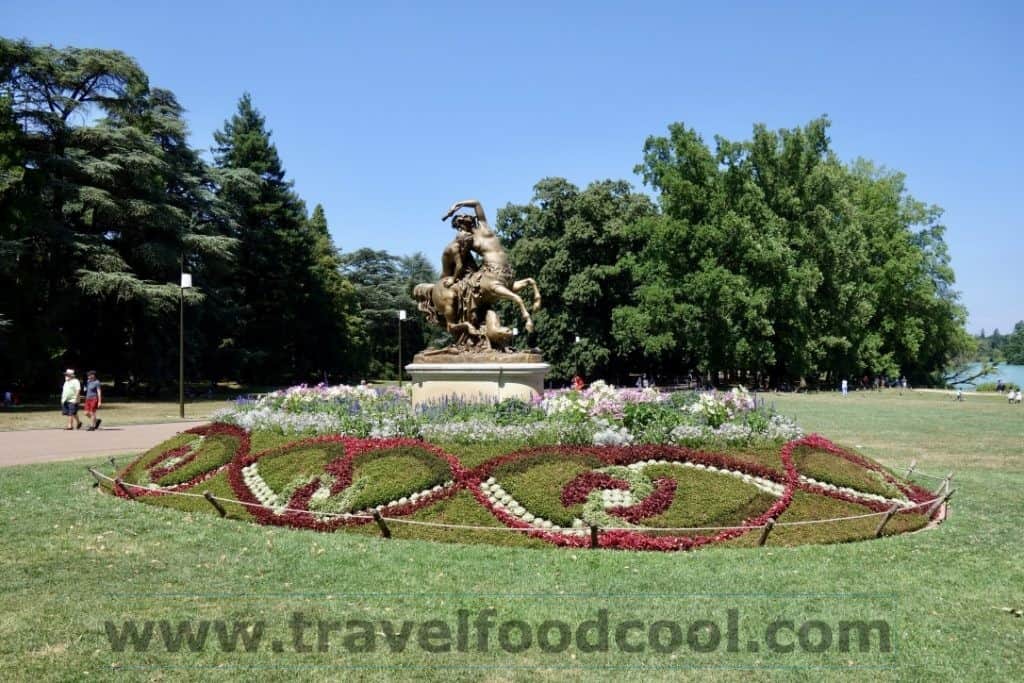
Like New York’s Central Park, Lyon’s Parc de la Tête d’Or is where the local Lyonnaise jog, cycle, boat (on the lake), play mini-golf or see the zoo (giraffes, elephants, deer, reptiles and other animals from all over the world, including a rare Barbary Lion). The park covers 290 acres (117 hectares) and began in 1812. The city continues to add exhibits every few years, and in 2010 made an African Safari addition to the zoo.
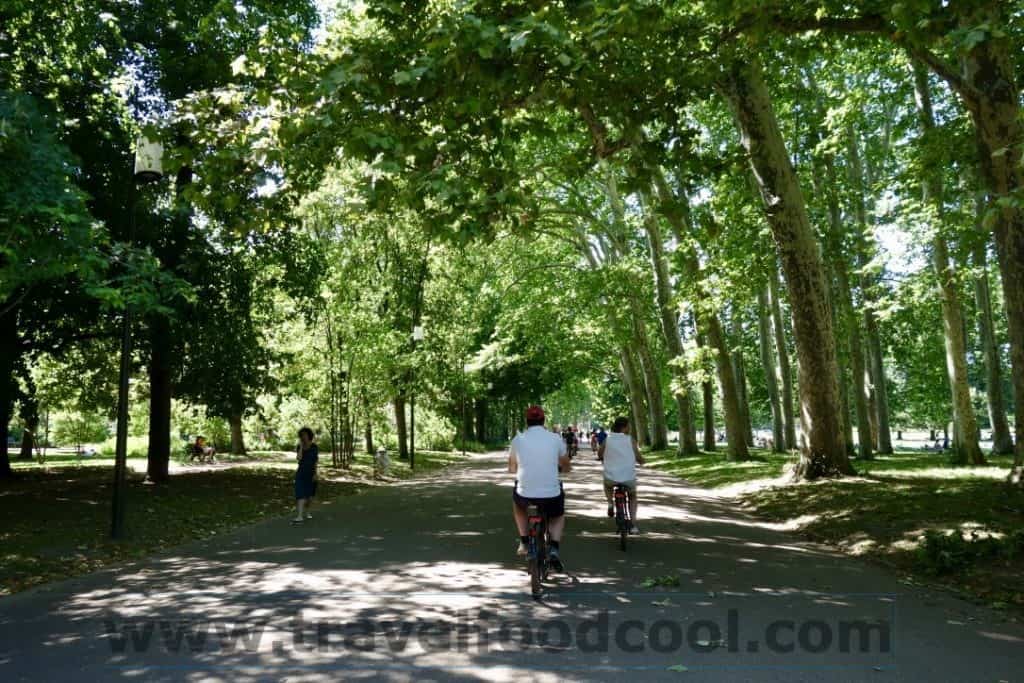
The area in 1530 was already called Parc de la Tête d’Or and is named after a legendary treasure – Christ’s head is said to have been buried on the grounds. There is still the occasional treasure seeker who will be arrested for trying to dig up the park looking for the mythical treasure.
Fourviere Hill
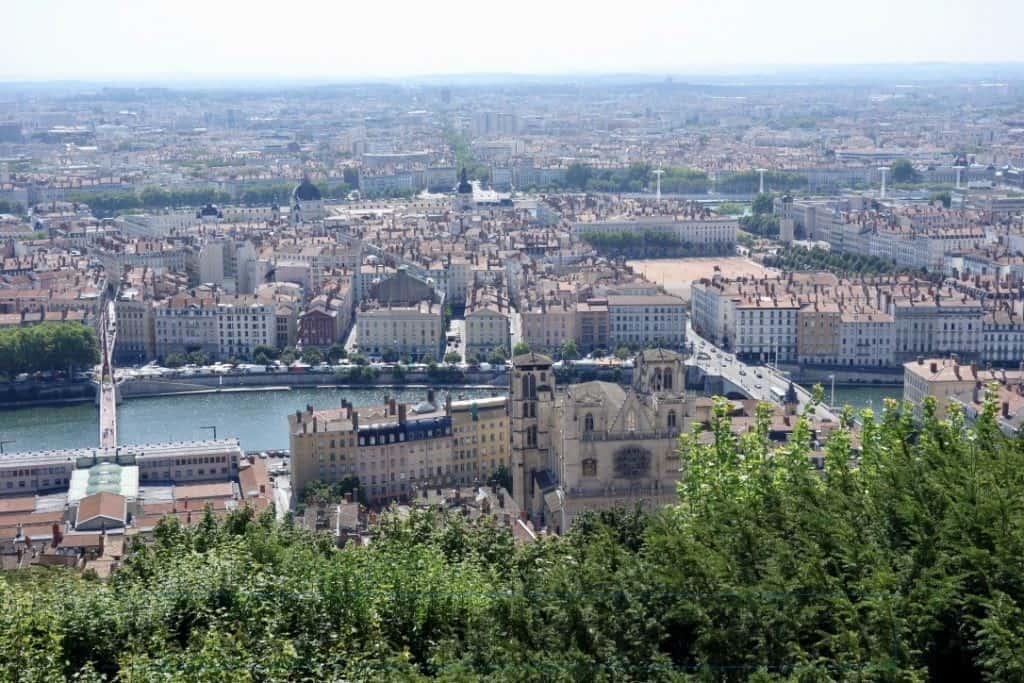
Originally, this was the site of a Roman settlement from 43 BC. The ruins of this settlement are still very much evident. The hill is most known primarily as the origin of the Festival of Lights (which takes place in Lyon every year) and the two oldest functioning funicular lines. The Eiffel Tower looking structure, La Tour Metallique, is nowadays used as a television tower (side note, it’s actually taller than the Eiffel Tower).
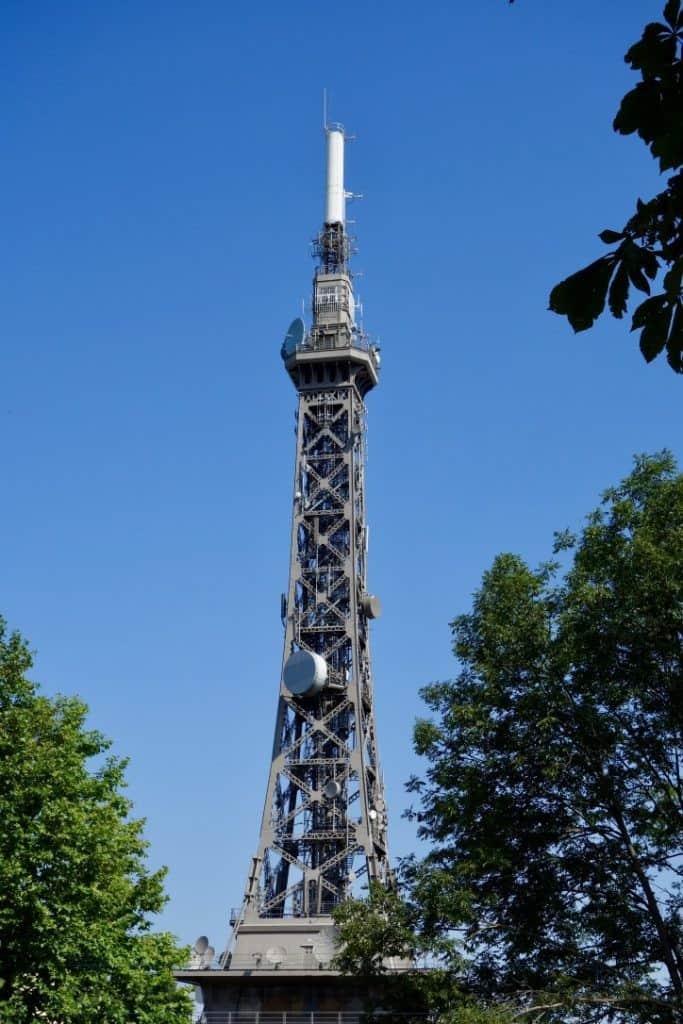
We walked up to the hill. It’s a long walk with lots of steps (798 according to some reports). It’s worth it, so you can feel slightly better about all that foie gras you ate the night before.
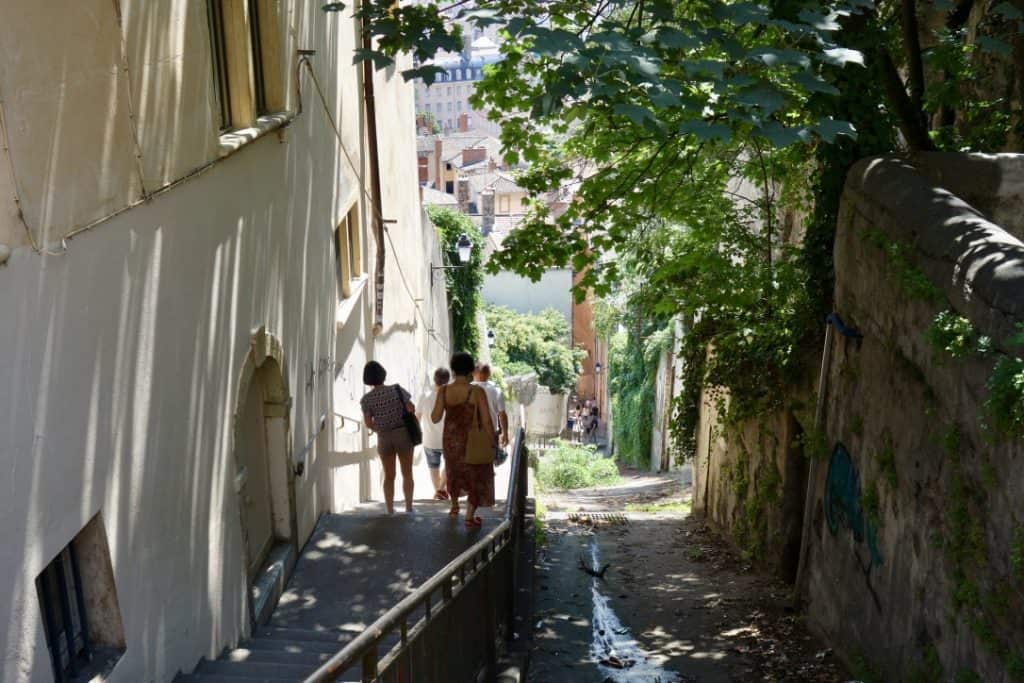
The main reason you want to come up? That stunning view! (And the Theatre and the Basilica, see below.)
Théâtre Gallo-Romain (the Gallo-Roman Theatre) (open daily 8am-9pm)
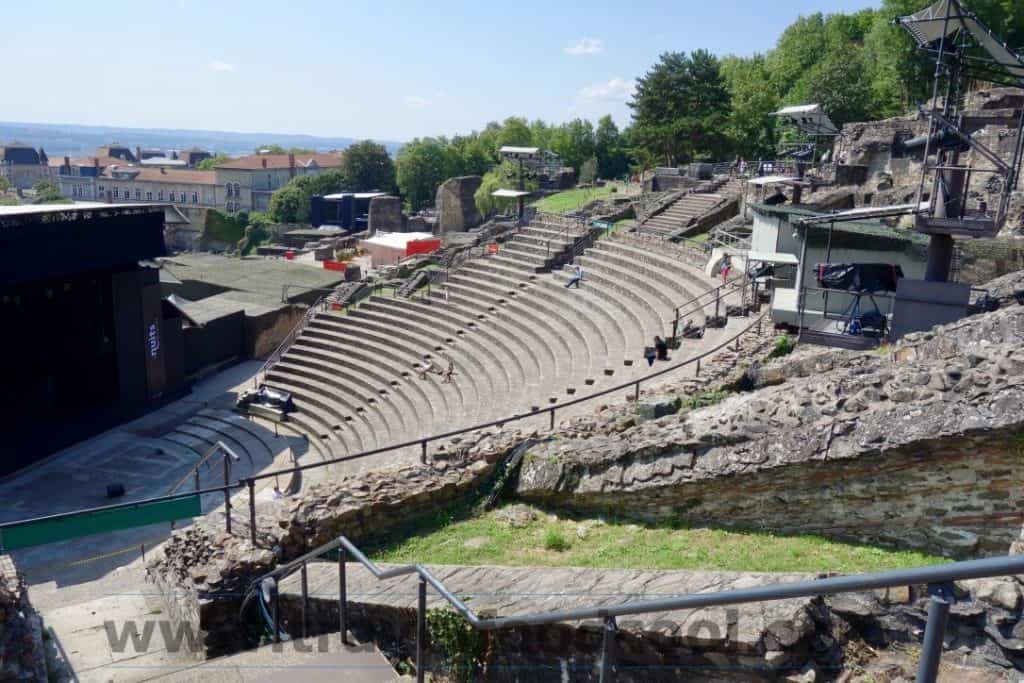
Emporer Claudius (10BC – 54 AD) was born in Lyon (Gaul at the time) and favoured Lyon. You can almost imagine him in his Emperor’s box at this theatre that once held 10,000 Romans giving a thumbs up or thumbs down. Walking around this theatre, or going to the smaller Odeon theatre nearby which held 3,000 people, gives you the feeling of walking in history.
Nowadays, you can also enjoy a modern-day spectacle there as every June and July the theatre is used for the Nuits de Fourvière Festival.
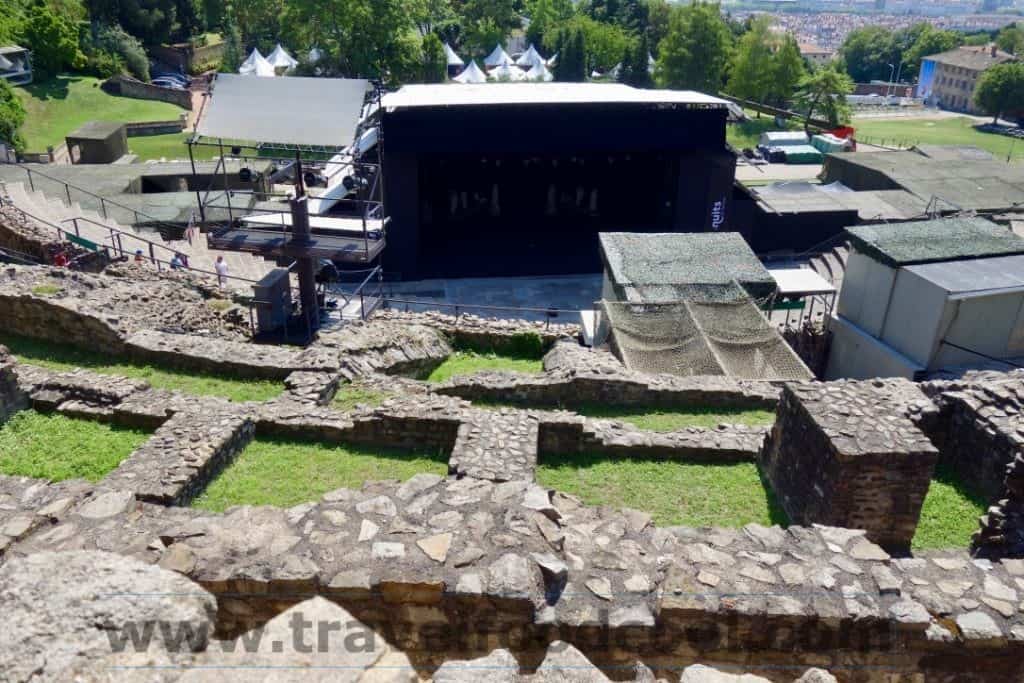
There is a Gallo-Roman museum nearby where various objects – statues, currency, jewelry, mosaics and ceramics – and other parts of both the public and private life of ancient Roman civilization are showcased.
Basilique Notre Dame de Fourviere (Notre Dame Basilica), (open daily 7am-7pm)
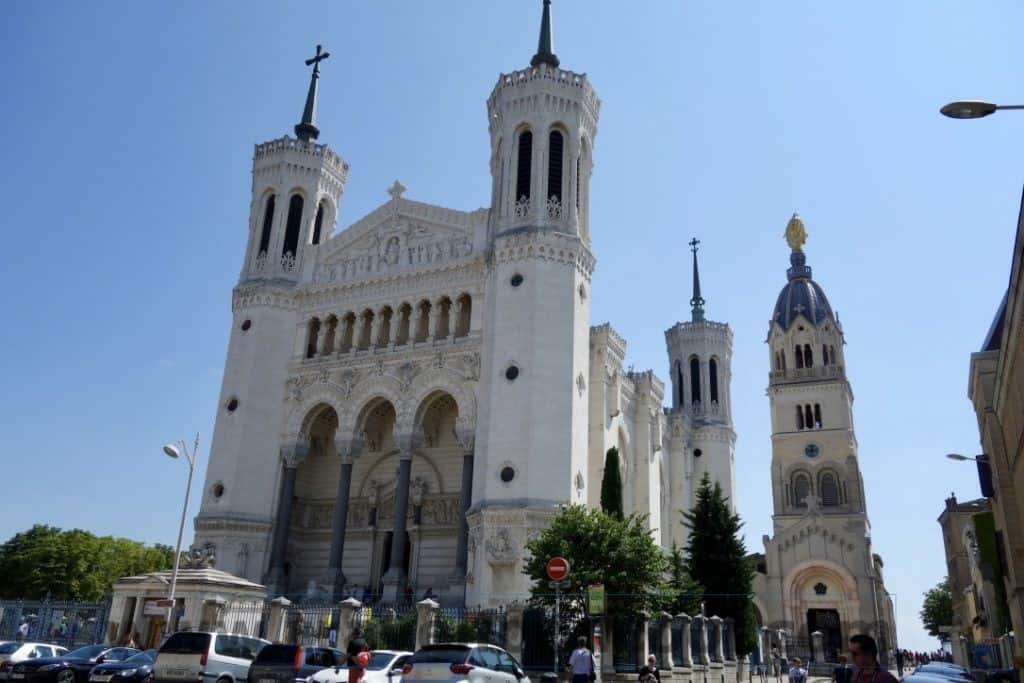
Claudius wasn’t the only Emperor in Lyon. Emperor Trajan once walked the grounds of the Basilique Notre Dame de Fourviere, but in his time it was the site of Trajan’s Roman forum. The French still refer to the site as Vieux-Forum (Old Forum). Many French historical figures have also made pilgrimages to the hill – maybe it’s for the panoramic view of the city.
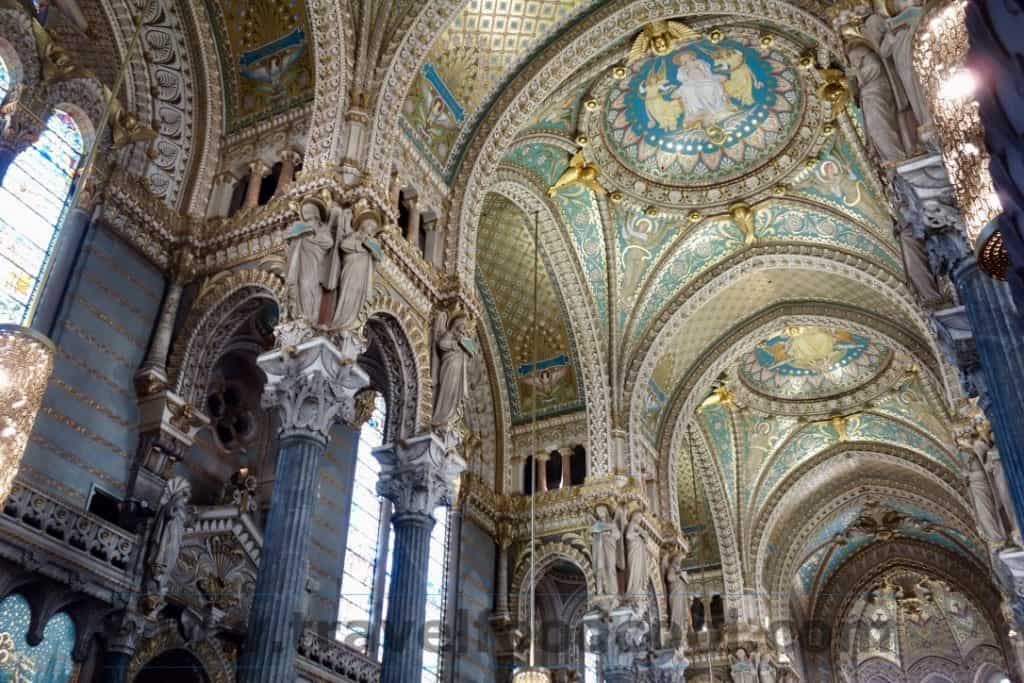
The Basilica, built in 1872 from private funds ,was a grand thank you to the Virgin Mary for saving Lyon from a cholera epidemic in 1823.
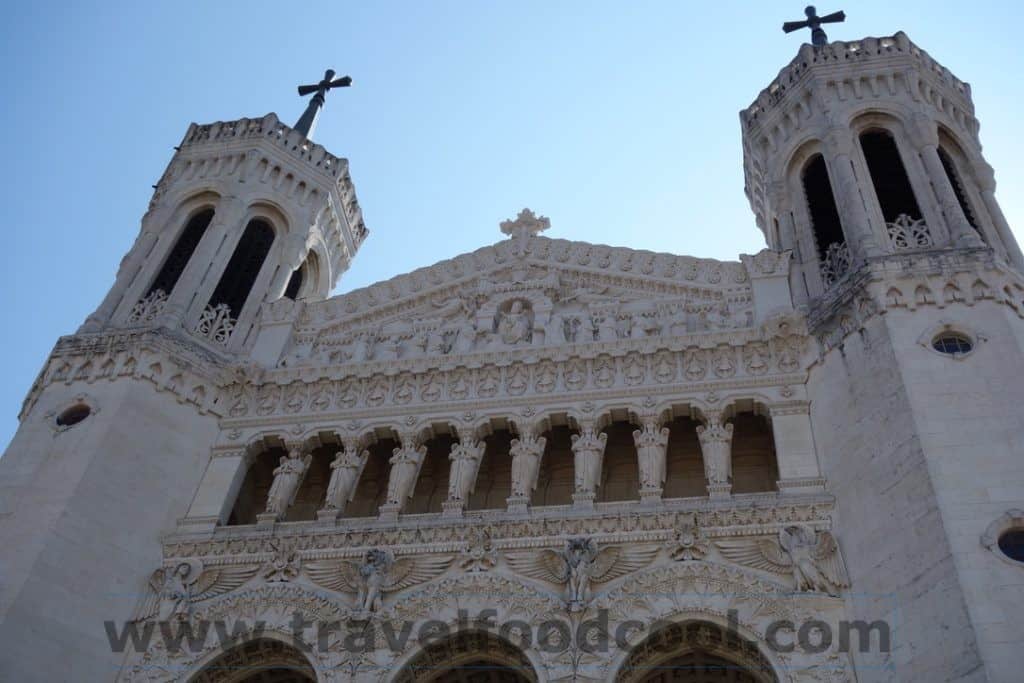
Marche Alimentaire St-Antoine Celestins (Tue-Thu 6am-1pm Fri-Sat 6am-1:30pm Sun 6am-2pm)
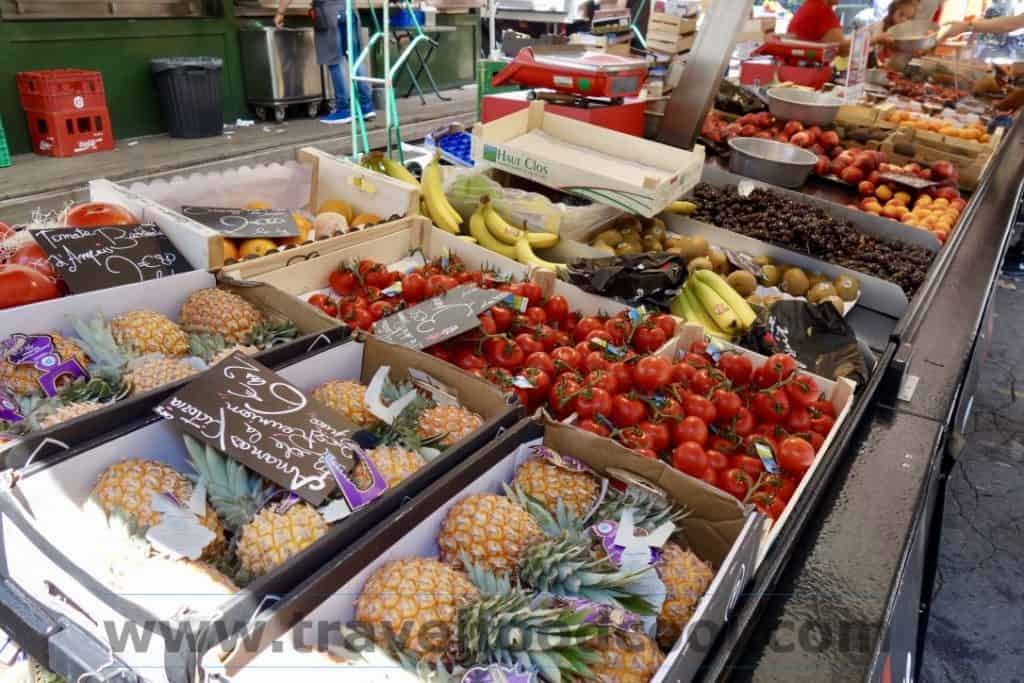
I love a good market! Located on the Quai Saône, between the Bonaparte and Maréchal-Juin bridges, since 1910, this is the spot to go for your daily grocery shopping!
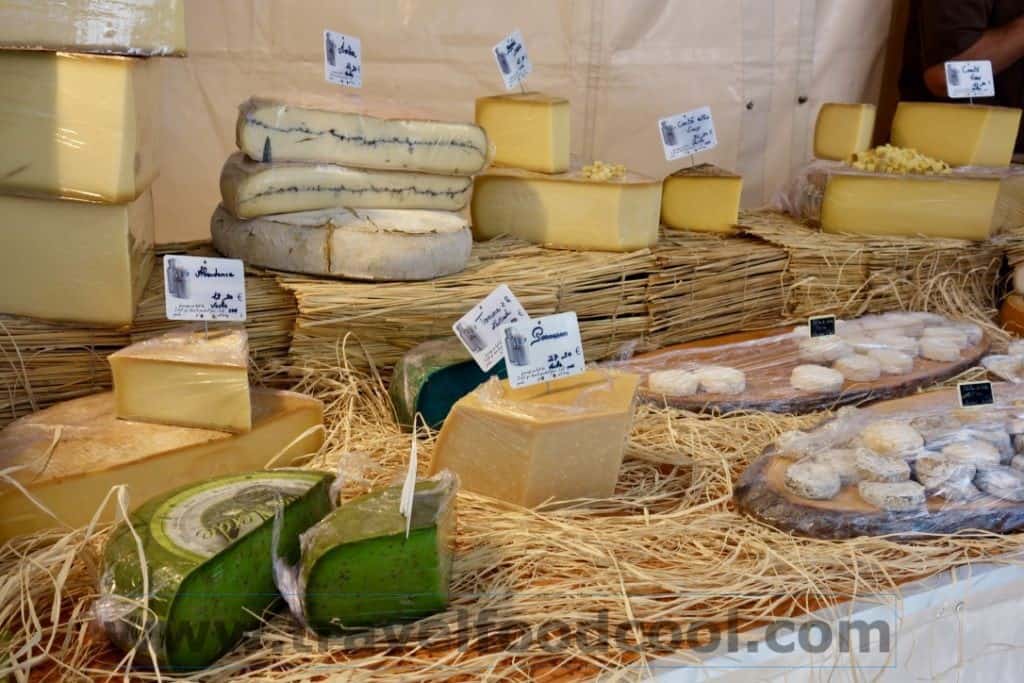
If you transplanted the St. Lawrence Farmer’s Market to the banks of the River Saône, you would get the idea. This outdoor market has everything from gorgeous vegetables, to flowers, cheese, meat, poultry, bread, wine, pastries and is a great place to people watch!
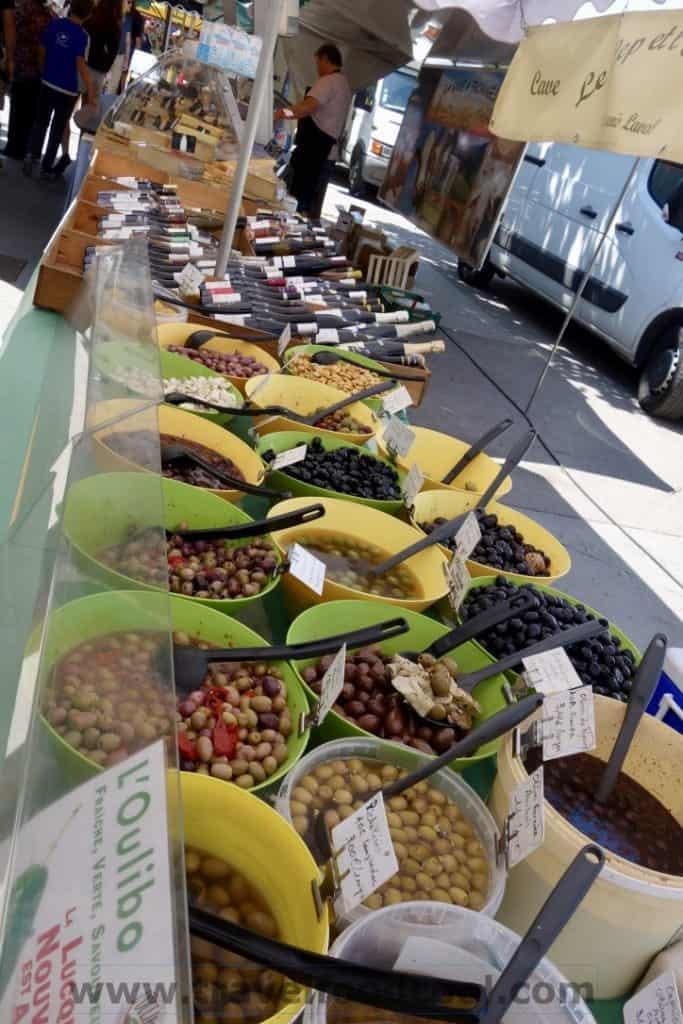
You can grab a bite as there are many food stalls selling regional foods (and lineups of hungry people at lunchtime)!
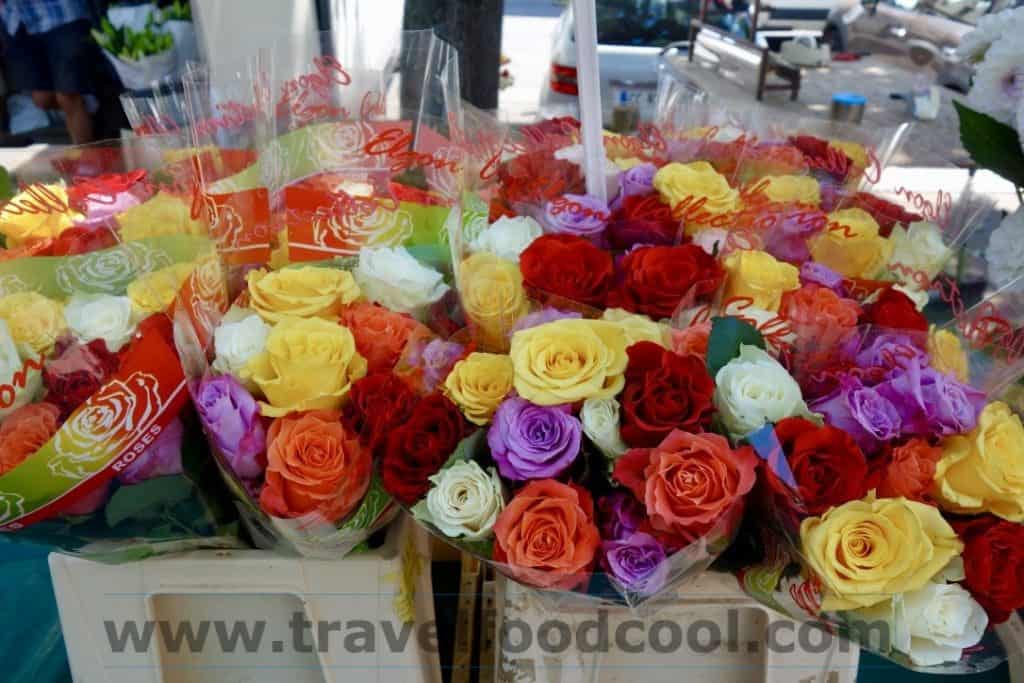
I think if I lived in Lyon, I would probably shop here every day!
Croix Rousse tunnel
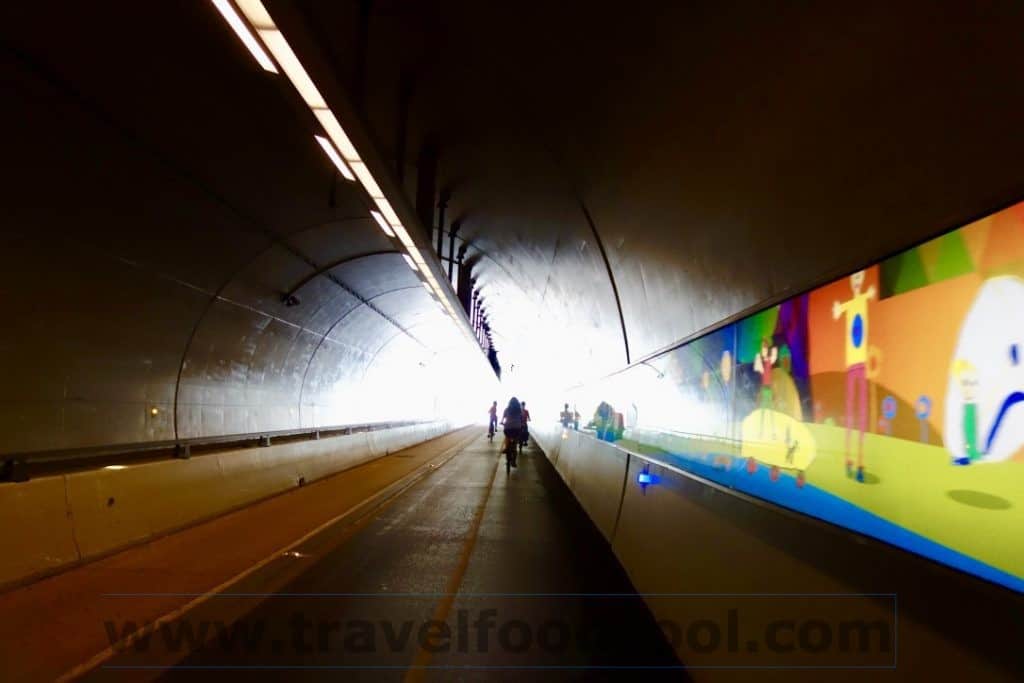
The Croix Rousse tunnel is actually two tunnels. One of the 1.78 km tunnels is open to cars. The other is open to public transportation and environmentally-friendly modes of transport – bicycles, roller skates, pedestrians, etc. I can tell you that cycling through the pedestrian tunnel is a lot of fun! Besides seeing how fast you can go, there is a whole multimedia display of coloured lights, music, videos,and images, all for the pedestrian or cyclists to enjoy.
La Fresque des Lyonnais (or the Mural of Lyon)
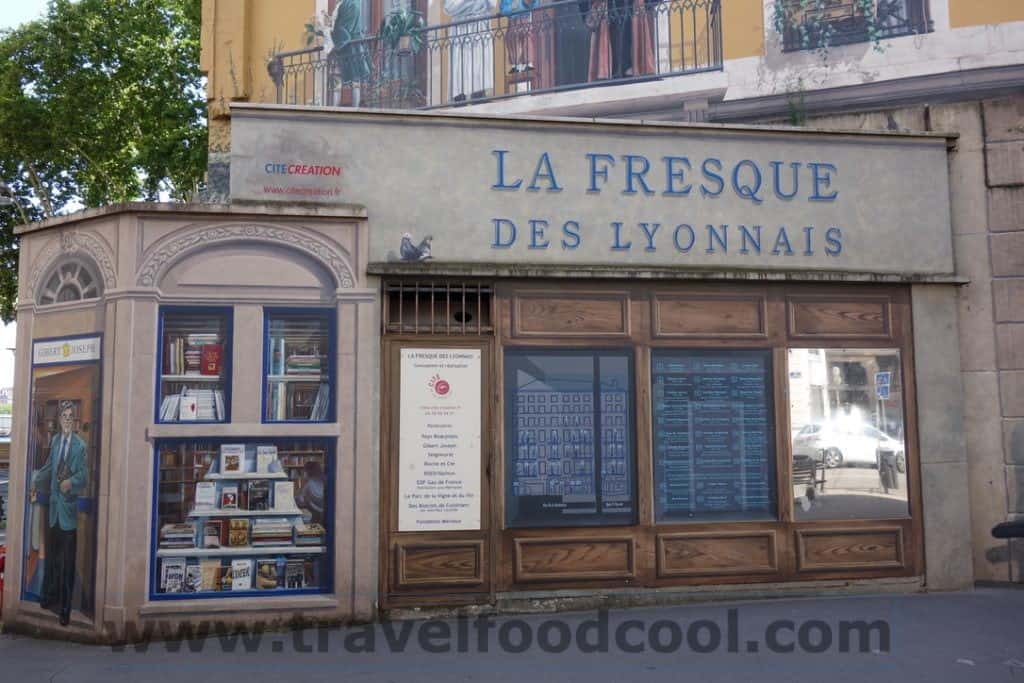
On the corner of 49 quai St. Vincent and 2 rue de la Martinière lies a unique building. Originally a windowless wall in the city, finished in 1995 after nine months, it was transformed into a who’s who of Lyon. Painted by CitéCréation, it was modeled after a similar mural in Barcelona.
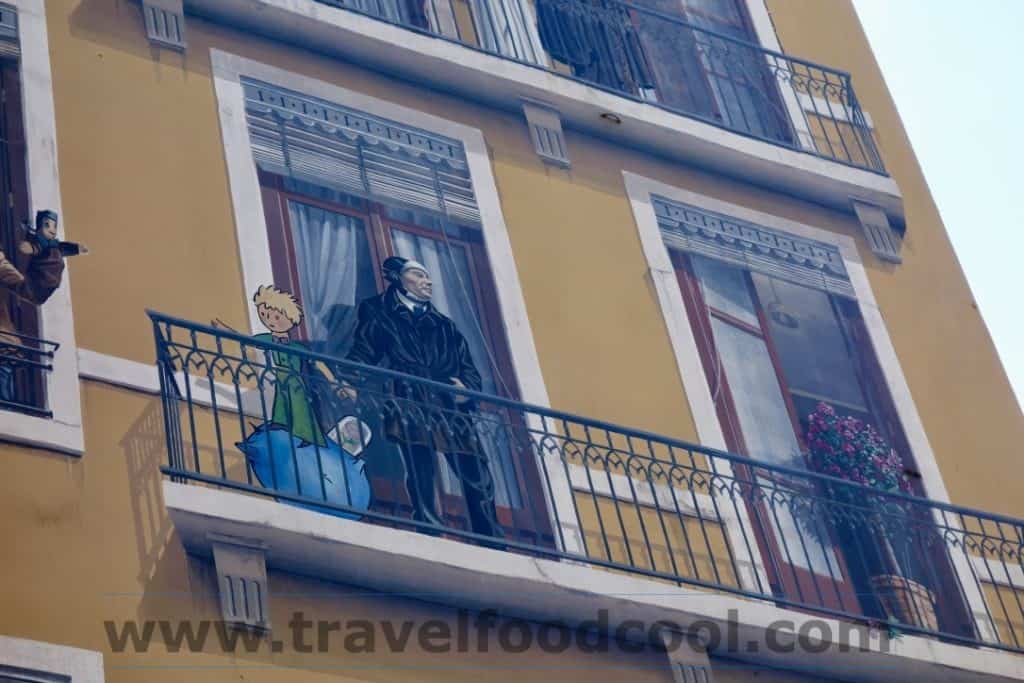
The 30 figures are comprised of 24 historic (Emperor Claudius (Roman Emperor born in Lyon 10BC), Ste Blandine (martyred patron saint of Lyon), Antoine de St-Exupéry (and the Little Prince), the Lumière brothers (Auguste and Louise, who created the motion picture camera) and 6 contemporary figures (including Paul Bocuse). The contemporary figures are painted at street-level, to represent them interacting with the visitors and residents of today.
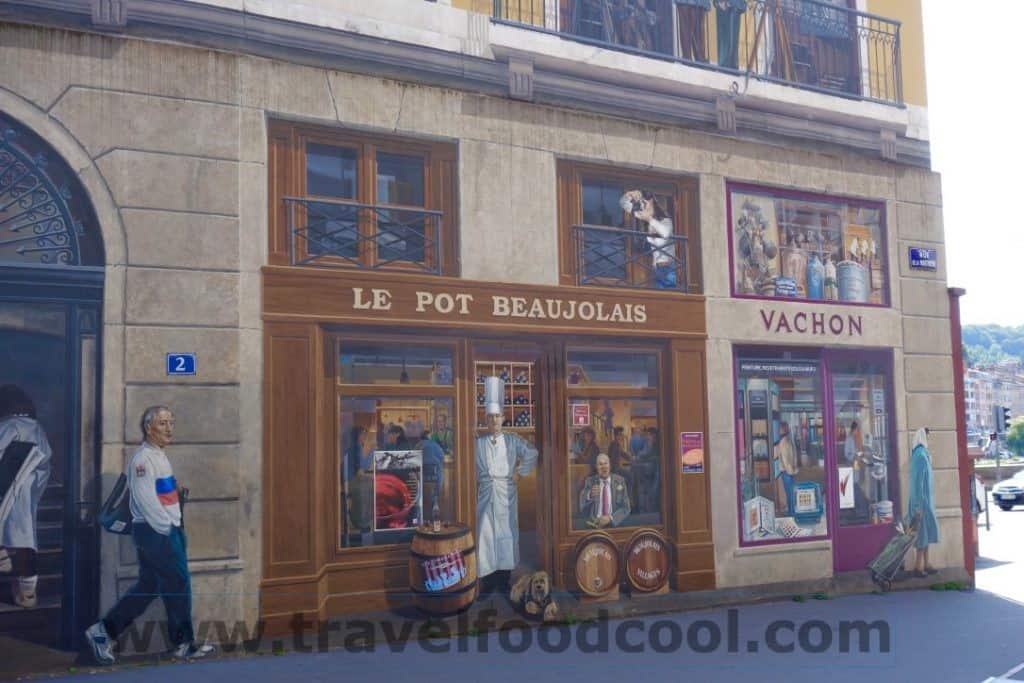
Les Halles de Lyon Paul Bocuse, (open all day)
This is the one site we did not manage to see. I’m including this as I’ve been told it’s quite fabulous.
Built in the 1960s (this is a reconstruction of the original 1869 building which was demolished), Les Halles de Lyon Paul Bocuse is a covered marketplace with over 50 upscale shops and restaurants. This is also a market where Lyon’s best ingredients for the city’s famous cuisine are showcased – sausages, dumplings and snails are hung, iced, and arranged by the competing vendors.
I hope you enjoy Lyon as much as we did!
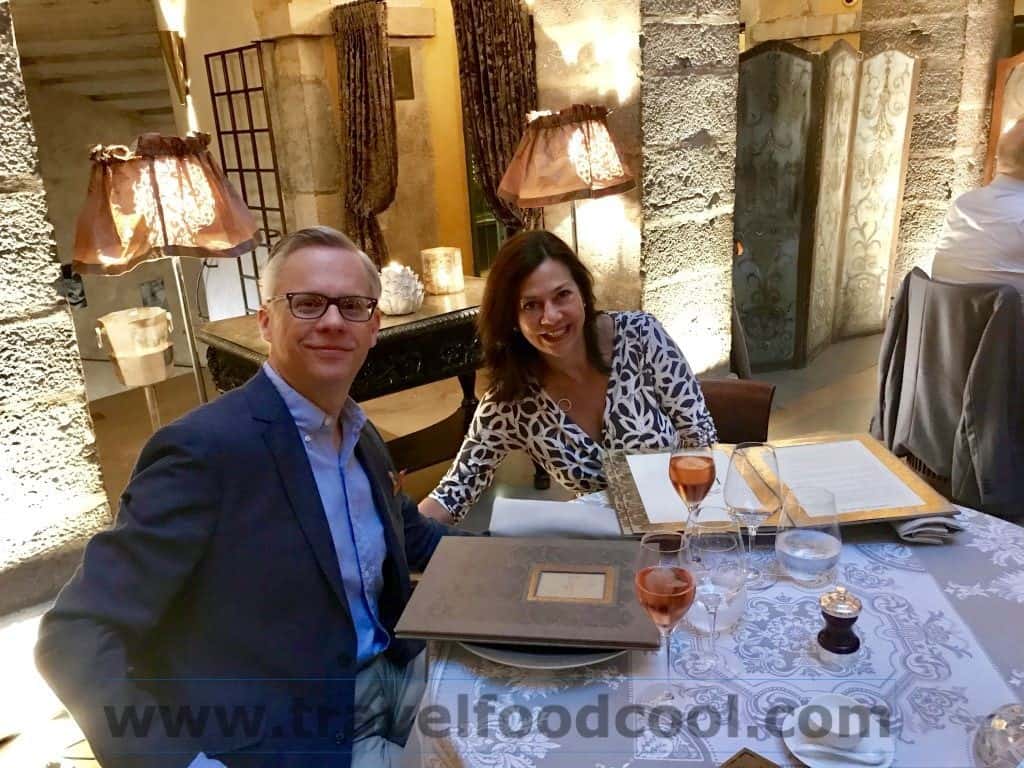
If you go: Cours Des Loges; 2, 4, 6, 8, rue du Boeuf, Lyon 69005, France





















